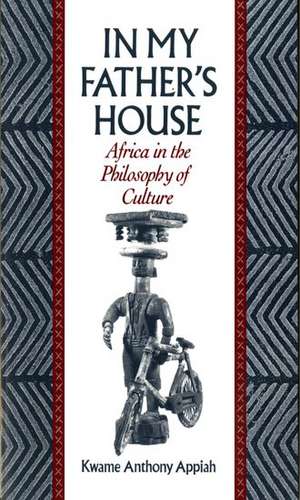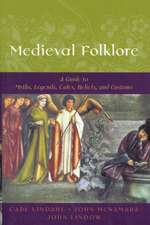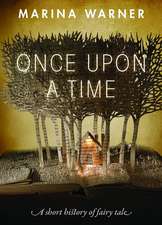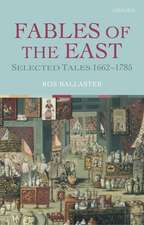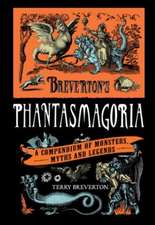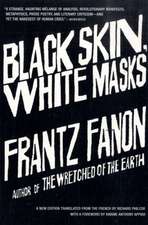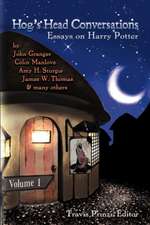In My Father's House: Africa in the Philosophy of Culture
Autor Kwame Anthony Appiahen Limba Engleză Paperback – 16 iun 1994
Preț: 156.88 lei
Preț vechi: 190.31 lei
-18% Nou
Puncte Express: 235
Preț estimativ în valută:
30.02€ • 31.34$ • 24.84£
30.02€ • 31.34$ • 24.84£
Carte tipărită la comandă
Livrare economică 25-31 martie
Preluare comenzi: 021 569.72.76
Specificații
ISBN-13: 9780195068528
ISBN-10: 0195068521
Pagini: 256
Dimensiuni: 156 x 233 x 19 mm
Greutate: 0.37 kg
Editura: Oxford University Press
Colecția OUP USA
Locul publicării:New York, United States
ISBN-10: 0195068521
Pagini: 256
Dimensiuni: 156 x 233 x 19 mm
Greutate: 0.37 kg
Editura: Oxford University Press
Colecția OUP USA
Locul publicării:New York, United States
Recenzii
A wonderfully crafted collection of essays.
Appiah's book on the place of Africa in contemporary philosophy powerfully exposes the dangers of any simplistic notion of African identity in the contemporary world....Tellingly, his reflections upon the calling of philosophy and the relation between post-traditional and not-yet-modern African culture(s) offer a welcome perspective on the increasingly shrill debates over "multiculturalism" that rend the academy. The epilogue on his father's funeral alone more than justifies the whole book.
Interesting and thought-provoking.
Montaigne invented the modern essay;...Appiah has the brilliance to extend it.
A groundbreaking
Appiah's essays are exquisitely and painstakingly argued.
An exceptional work, whose contextual sweep and lucidity provide a refreshing intellectual tone away from yahoo populism. In many profound ways, Kwame Appiah's In My Father's House ushers in a new level of discourse on race and culture, placing it within a universal narrative
In My Father's House is a remarkable book that brings previously invisible cultural assumptions to the surface and obliges us to rethink our conceptions about African identity. Drawing upon a variety of elegantly analyzed historical examples and relating them to his own personal experiences of the African world, Anthony Appiah convincingly demonstrates the need to go beyond stereotyped notions of race and futile laments about past injustices. His observations about authenticity movements, the persistence of Western constructions of African realities, and the emergence of new syntheses of knowledge among African peoples represent a major breakthrough in the ongoing debate over the future of African culture.
This is an absorbing and path-breaking book by a gifted philosopher. Appiah rescues the philosophy of culture from Herder by insisting that we drop notions like 'authentic negritude' and that 'African culture' is the name of an important project rather than of an available datum. The book's range of reference and the vigor of its argumentation are equally impressive.
Appiah's concern is, he modestly states, 'with the situation of African intellectuals.' In the growing literature on the subject, nobody has defined that situation, as it exists now, more sharply; nobody has built so many bridges to a discourse that might be shared universally. Learned yet unpretentious, serious and witty, critical and kind
Illumined in this book are issues of race and ethnicity; culture and rationality; literature and cosmology; orality, literacy, and philosophy....The focus is on Africa, and the commitment, both moral and emotional, is to Africa; but the intellectual standpoint is universal. Appiah's philosophical genius and wide learning are evident on every page. All readers, in particular, those with any interest in Africa
In My Father's House is a book of solid intelligence and a major contribution to the field of African philosophy.
The greatest merit of these wonderful essays is the depiction of the possibility of a postcolonial culture that neither worships the "modern" nor romanticizes the past.... This is a must book for anyone interested in the politics of culture, Third World art and literature, race and culture, and how Africa has been invented in the West.
Appiah's work must rank as a major force in the process of self-reflection involved in contemporary black discourse....Race and the question of identity are of course central preoccupations in Appiah's meditations, but what makes these essays significant is his endeavour to foster a fresh consideration of the concept of race and of the notion of identity
Kwame Anthony Appiah has translated his privileged position between and within the cultures of three continents, and his fluency in a wide array of disciplines and discourses, into an extraordinarily insightful series of essays. In My Father's House is a brilliant contribution to intercultural thinking; it should be required reading for anyone interested in African Studies or cultural studies of any kind. For, as Appiah explains and proves, Africa cannot be seen in isolation, nor is it of interest to Africanists alone; Africa must be analyzed within "a network of points of affinity," among "the mutual interdependencies history has thrust upon us." Moving from a rigorous critique of past models of identity to the articulation of a new, demystified "humanism," Appiah weaves philosophy, literature, history, and his own autobiography into a book that is truly a pleasure to read.
Appiah's thoughtful treatment of nationalism, Pan-Africanism and the role of African intellectuals makes a point which is often overlooked in discussions of difference and discrimination, namely, that in struggling for more equitable relations we have to pursue genuinely human goals. He appropriately emphasizes the political role of particular identities, the importance of the solidarity of those similarly oppressed, and, with skill and sensitivity, addresses the occasional tension between such identities and the search for a broader vision.
Studious re-interrogations of cultural issues that have exercised African writers, politicians, historians and philosophers form the homeland to the various diasporas and through many 'altered states'
A sophisticated and fascinating attempt to redefine and celebrate his heritage as a post-colonial, postmodern African.
A cogent and very readable philosophical investigation into the question of an "African identity" in all its cultural and political ramifications....Appiah's strategy of putting himself and his forebears into the context of an academic study further enlivens an already lively book and gives it a deep intimate resonance. Appiah is a writer of great charm and fluency, and he weaves these strands together with consummate skill. He is also a great explainer, and he sums up the theoretical backgrounds to his arguments with unusual clarity. his style is engagingly flamboyant and as persuasive as it is provocative.
Impressive...An erudite and demanding work, engaging with debates in moral philosophy, anthropology and the politics of racial and national identity.
A powerful and persuasive polemic.
Excellent text....Of particular value to Aficanists, outlines and lucidly argues some of the most hotly debated points of contention in the field.
Appiah's book on the place of Africa in contemporary philosophy powerfully exposes the dangers of any simplistic notion of African identity in the contemporary world....Tellingly, his reflections upon the calling of philosophy and the relation between post-traditional and not-yet-modern African culture(s) offer a welcome perspective on the increasingly shrill debates over "multiculturalism" that rend the academy. The epilogue on his father's funeral alone more than justifies the whole book.
Interesting and thought-provoking.
Montaigne invented the modern essay;...Appiah has the brilliance to extend it.
A groundbreaking
Appiah's essays are exquisitely and painstakingly argued.
An exceptional work, whose contextual sweep and lucidity provide a refreshing intellectual tone away from yahoo populism. In many profound ways, Kwame Appiah's In My Father's House ushers in a new level of discourse on race and culture, placing it within a universal narrative
In My Father's House is a remarkable book that brings previously invisible cultural assumptions to the surface and obliges us to rethink our conceptions about African identity. Drawing upon a variety of elegantly analyzed historical examples and relating them to his own personal experiences of the African world, Anthony Appiah convincingly demonstrates the need to go beyond stereotyped notions of race and futile laments about past injustices. His observations about authenticity movements, the persistence of Western constructions of African realities, and the emergence of new syntheses of knowledge among African peoples represent a major breakthrough in the ongoing debate over the future of African culture.
This is an absorbing and path-breaking book by a gifted philosopher. Appiah rescues the philosophy of culture from Herder by insisting that we drop notions like 'authentic negritude' and that 'African culture' is the name of an important project rather than of an available datum. The book's range of reference and the vigor of its argumentation are equally impressive.
Appiah's concern is, he modestly states, 'with the situation of African intellectuals.' In the growing literature on the subject, nobody has defined that situation, as it exists now, more sharply; nobody has built so many bridges to a discourse that might be shared universally. Learned yet unpretentious, serious and witty, critical and kind
Illumined in this book are issues of race and ethnicity; culture and rationality; literature and cosmology; orality, literacy, and philosophy....The focus is on Africa, and the commitment, both moral and emotional, is to Africa; but the intellectual standpoint is universal. Appiah's philosophical genius and wide learning are evident on every page. All readers, in particular, those with any interest in Africa
In My Father's House is a book of solid intelligence and a major contribution to the field of African philosophy.
The greatest merit of these wonderful essays is the depiction of the possibility of a postcolonial culture that neither worships the "modern" nor romanticizes the past.... This is a must book for anyone interested in the politics of culture, Third World art and literature, race and culture, and how Africa has been invented in the West.
Appiah's work must rank as a major force in the process of self-reflection involved in contemporary black discourse....Race and the question of identity are of course central preoccupations in Appiah's meditations, but what makes these essays significant is his endeavour to foster a fresh consideration of the concept of race and of the notion of identity
Kwame Anthony Appiah has translated his privileged position between and within the cultures of three continents, and his fluency in a wide array of disciplines and discourses, into an extraordinarily insightful series of essays. In My Father's House is a brilliant contribution to intercultural thinking; it should be required reading for anyone interested in African Studies or cultural studies of any kind. For, as Appiah explains and proves, Africa cannot be seen in isolation, nor is it of interest to Africanists alone; Africa must be analyzed within "a network of points of affinity," among "the mutual interdependencies history has thrust upon us." Moving from a rigorous critique of past models of identity to the articulation of a new, demystified "humanism," Appiah weaves philosophy, literature, history, and his own autobiography into a book that is truly a pleasure to read.
Appiah's thoughtful treatment of nationalism, Pan-Africanism and the role of African intellectuals makes a point which is often overlooked in discussions of difference and discrimination, namely, that in struggling for more equitable relations we have to pursue genuinely human goals. He appropriately emphasizes the political role of particular identities, the importance of the solidarity of those similarly oppressed, and, with skill and sensitivity, addresses the occasional tension between such identities and the search for a broader vision.
Studious re-interrogations of cultural issues that have exercised African writers, politicians, historians and philosophers form the homeland to the various diasporas and through many 'altered states'
A sophisticated and fascinating attempt to redefine and celebrate his heritage as a post-colonial, postmodern African.
A cogent and very readable philosophical investigation into the question of an "African identity" in all its cultural and political ramifications....Appiah's strategy of putting himself and his forebears into the context of an academic study further enlivens an already lively book and gives it a deep intimate resonance. Appiah is a writer of great charm and fluency, and he weaves these strands together with consummate skill. He is also a great explainer, and he sums up the theoretical backgrounds to his arguments with unusual clarity. his style is engagingly flamboyant and as persuasive as it is provocative.
Impressive...An erudite and demanding work, engaging with debates in moral philosophy, anthropology and the politics of racial and national identity.
A powerful and persuasive polemic.
Excellent text....Of particular value to Aficanists, outlines and lucidly argues some of the most hotly debated points of contention in the field.
Notă biografică
Kwame Anthony Appiah is Professor of Afro-American Studies at Harvard University. His books include Assertion and Conditionals (1985), For Truth in Semantics (1986), Necessary Questions (1989), and the novel Avenging Angel (1991). He is currently editing the Oxford Book of African Literature.
